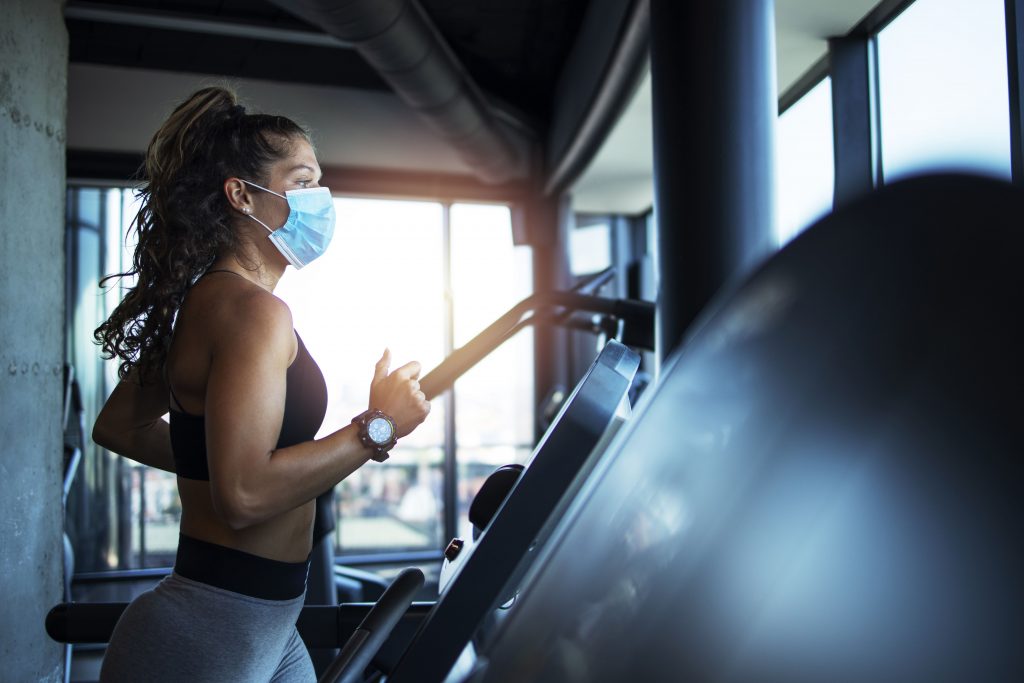Effective immediately, sectors including gyms and fitness centers; personal care services; and museums, zoos, and aquariums are now allowed to reopen indoor operations as Santa Clara County moves into the less-restrictive Red Tier on California’s Blueprint for a Safer Economy framework.
This afternoon, Santa Clara County was named one of the five counties that were moved from the most restrictive Purple Tier to the Red Tier, which allows many more sectors to reopen with appropriate protocols and protective measures in place.
In addition to gyms, nail salons, tattoo parlors, massage parlors and museums, once the County maintains its Red Tier status for two weeks, K-12 schools are able to reopen.
Museums, zoos and aquariums have an indoor capacity of 25 percent while gyms and fitness centers have an indoor capacity of 10 percent. Additionally, malls and stores are allowed to increase capacity from 25 percent to 50 percent.
“We are pleased at this sign of progress in the fight against COVID-19, but we remind our residents that all local requirements involving the number of people who can enter a facility, face covering requirements, and social distancing protocols remain in effect,” said James R. Williams, County Counsel for the County of Santa Clara. “It is critical that the businesses and activities that reopen today follow the public health directives so that we can maintain our community’s progress in bringing down COVID-19 transmission.”
Santa Clara County’s Risk Reduction Order is more restrictive in many ways than the State’s framework and doesn’t allow for some sectors to open even under the Red Tier. Sectors that are not allowed to reopen include indoor dining, indoor movie theaters, and indoor gatherings of any type — including religious gatherings. The stricter of the State or local order always controls, reminded Williams.
The Risk Reduction Order operates off of core principles that guide what is allowed and what isn’t. The principles include the facts that outdoors is preferred to indoors, more brief interactions are preferred over prolonged interactions, more physical distance is better than less distance, face coverings are required in most environments, and staying at home is the absolute safest way to protect yourself from COVID-19. For example, indoor dining isn’t allowed at this time, according to Williams, because you are indoors and also without a mask.
Businesses that are allowed to reopen indoors must submit and display their Social Distancing Protocol to the County to be able to reopen. They also must honor density limits and all other County directives.
According to the County, the move to the Red Tier was based on daily case rates and test positivity. The State’s framework gives counties credit toward their case rate if they test more people than the State average. Using this calculation, the high number of tests performed in Santa Clara County gave it a significant credit, allowing the County to move to the Red Tier.
Dr. Marty Fenstersheib, COVID-19 Testing Officer, said the County is testing between 7,000 – 8,000 patients a day.
Santa Clara County will stay in the Red Tier for at least three weeks and after those three weeks the County may move into the even less restrictive Orange Tier if conditions improve. However, if conditions get significantly worse, the County may be pushed back into the most-restrictive Purple Tier in as soon as two weeks.
According to Dr. Mark Ghaly, the State’s Secretary of Health and Human Services Agency, the state reviews the counties’ Tier status every week and this was the second reporting period.
For more information about the State framework, visit covid19.ca.gov. For more information on the local public health order and directives, visit www.sccgov.org/coronavirus.
